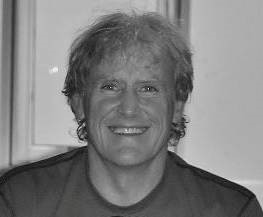In English
Who is Mark Lowey?

Mark Graduated as a Dentist in 1981 from Guy's hospital in London. He was awarded the prestigious Final year Prize. He worked as a General dentist for six years and as an Oral Surgeon for two. He completed his six years Specialist training, working in most of the famous London Hospitals at various times, and was again a Final year Prize winner. He was a Consultant In Orthodontics and ran his own department in Exeter for three years before coming to Norway in 1993.
His full CV and the International publications to his credit can be seen on the website under the banner "Vakre Smil- Om Mark Lowey".
He is passionate about aligning children's teeth without premolar extractions and has a very low extraction rate.
He does not use Headgear or Facemasks.
Because of his experience as a General dentist and Oral surgeon there are very few facial growth problems he has not tackled. His experience means it is easy for him to liaise with Surgeons and Dentists to deliver complex care for interdisciplinary cases.
What is orthodontics?
Orthodontic treatment corrects irregularities of the position of the teeth or developing jaws. Corrective appliances, such as braces are worn to improve the function and appearance of the mouth and face.
Why should I have orthodontic treatment?
Teeth that are not straight are more difficult to keep clean and can contribute to tooth decay and gum disease. In some cases misalignment of teeth can lead to abnormal wear on the tooth surface and problems with jaw joints. If left untreated many orthodontic problems become worse.
Many people have missing teeth or teeth coming into the wrong place in the mouth. This is four times more common in Norway than anywhere else in Europe. Detecting these problems later in life can cause complications. Adjacent teeth can be damaged by an ectopic tooth or implants might be required which could have been avoided.
Patients with large Overjets are much more likely to damage their prominent teeth unless this is corrected.
It is estimated that 50% of the population could benefit from orthodontic treatment. In many case treatment can also boost self-esteem in patients of all ages. The value of an attractive smile should not be underestimated!
When should I have treatment?
Both children and adults can benefit from orthodontic treatment. The orthodontist ideally likes to see patients for an initial assessment between the ages of 7 and 10. Some children may require treatment at this early stage but it is more common to start at around the age of 12 once the permanent teeth have erupted.
You’re never too old to have braces. Orthodontic treatment for adults is continually increasing with appliances becoming less obtrusive. Treatment may take a little longer for adults as they are no longer growing and certain cases may not be corrected with braces alone.
Are there less noticeable braces?
Modern braces are generally less noticeable. Fixed appliance brackets have become smaller and are available in a clear colour. In some minor cases a series teeth can be corrected ‘invisibly’ using a series of clear plastic aligners. Lingual orthodontics (fixed brackets placed behind the teeth) is also available at Beautiful Smiles!
Will treatment hurt?
Orthodontic appliances can be a little uncomfortable for the first few days after fitting and adjustment appointments. Your teeth may feel tender and you may have a few ulcers until your mouth gets used to the brace. Your orthodontist will advise you on how to relieve the discomfort, which is normally short-lived.
How long does treatment take?
Treatment time varies with individual patients. Typically the active treatment may take 18 to 24 months, which is then followed by the retention phase to hold the teeth in their new position. Depending on the original problem your retainers may be fixed or removable.



